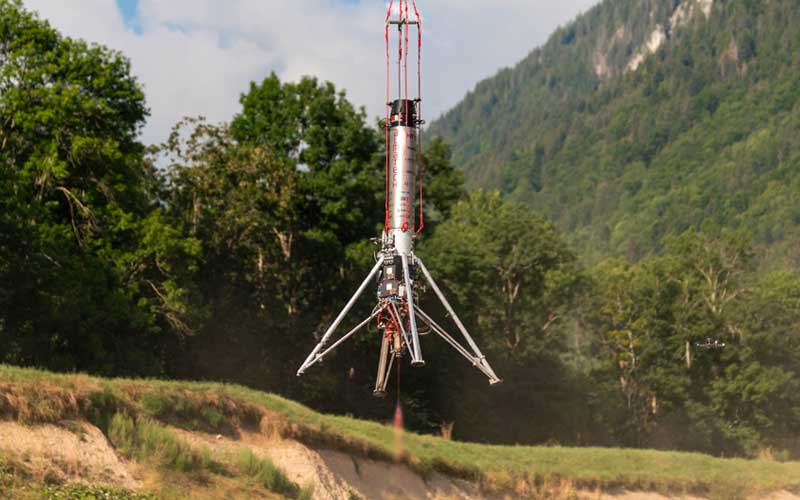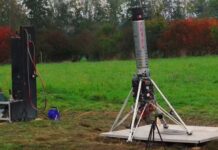
A group of students from the Swiss Federal Institute of Technology Lausanne in Switzerland have built and begun testing a vertical takeoff, vertical landing demonstrator called Colibri.
Launched in 2018, the Gruyère Space Program (GSP) developed and built a 100-kilogram, 2.5-metre rocket hopper powered by its in-house developed 1.2 kN bipropellant (N2O/IPA) F-100 rocket engine. The group completed the first test firing of its F-100 engine in May 2022.
In addition to Colibri, GSP has also built a small rocket-shaped UAV called uMouche. The UAV serves as a Guidance Navigation and Control (GNC) test bed, which allows the company to test software and hardware that will be utilized aboard Colibri without incurring the significant cost of conducting a test flight of the full-scale rocket hopper.
The Colibri rocket hopper was tested for the first time on 2 June 2024. Since then, the group has performed 22 separate test flights. The longest flight (Flight #20) was performed on August 8, during which the hopper performed several in-air manoeuvres over a 36-second flight. The highest altitude reached was eight metres, achieved during its most recent test flight on 13 August. All 22 flights have been performed with a passive safety harness, which has been called into action during a few tests.
While testing of Colibri is still ongoing, GSP is already exploring possible future applications for its technology. One path being explored includes launching a space mobility startup.


